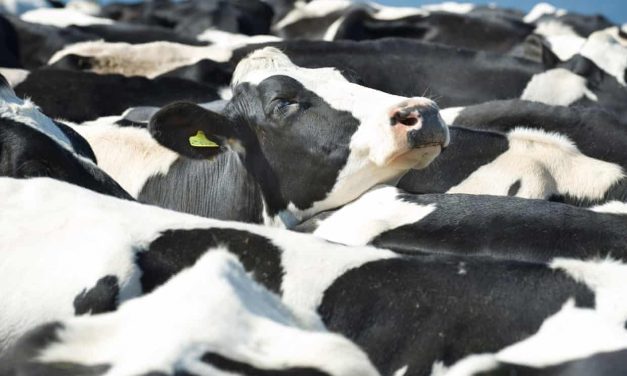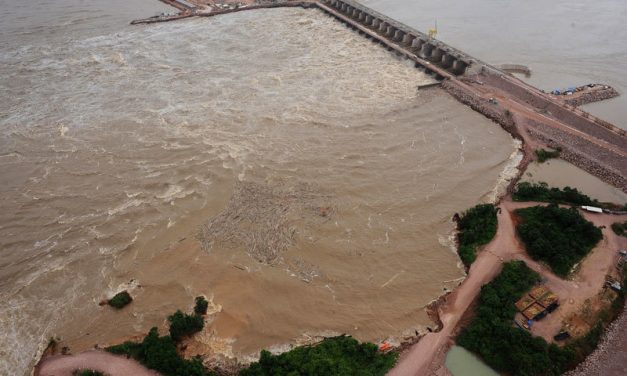Wildlife conservation
Plant-Based Diets Crucial to Saving Global Wildlife, Says Report
by The CNCL Team | Feb 7, 2021 | Earthlings | 0
The global food system is the biggest driver of destruction of the natural world, and a shift to predominantly plant-based diets is crucial in halting the damage, according to a report.
Read MoreMore Than 500 Dams Planned in Protected Areas Around the Globe, Study Finds
by The CNCL Team | Aug 5, 2020 | Earthlings | 0
More than 500 dams are planned or already under construction within protected areas around the world, according to a new study published in the journal Conservation Letters.
Read MoreThe Top 10 Ocean Biodiversity Hotspots to Protect
by The CNCL Team | Jun 7, 2020 | Earthlings | 0
A new study took a deep dive into critical aspects of ocean life to identify the areas of the high seas most worthy of conservation effort.
Read More10 Things We’ve Learned a Decade After the Deepwater Horizon Disaster
by The CNCL Team | Apr 21, 2020 | Earth | 0
We know a lot more now about the ecology of the Gulf of Mexico and the risks of deep-water drilling, but that doesn’t mean we’re any safer.
Read MoreConservationists Point at Pandemic as Reason to Protect Wildlife
by The CNCL Team | Apr 21, 2020 | Earthlings | 0
As scientists believe the new coronavirus may have been passed to humans in a live animal market in China, wildlife advocates say rolling back efforts to protect threatened animal populations has dire consequences.
Read MoreHow COVID-19 Took Hold and Why We Must End the Wildlife Trade
by The CNCL Team | Apr 13, 2020 | Earthlings | 0
Here’s what we can do to make sure the critical mistakes made after the SARS outbreak won’t be made again.
Read MoreNow’s a Great Time to Become a Backyard Naturalist — Here’s How
by The CNCL Team | Apr 13, 2020 | Personal | 0
Connecting with nearby nature can give people a much-needed boost — and help save wildlife, too.
Read MoreCoronavirus Closures Reveal Vast Scale of China’s Secretive Wildlife Farm Industry
by The CNCL Team | Apr 1, 2020 | Earthlings | 0
Peacocks, porcupines and pangolins among species bred on 20,000 farms closed in wake of virus
Read MoreCoronavirus: ‘Nature Is Sending Us a Message’, Says UN Environment Chief
by The CNCL Team | Mar 31, 2020 | Earthlings | 0
Destruction of wildlife and the climate crisis is hurting humanity, with Covid-19 a ‘clear warning shot’, say experts.
Read MoreOver 100,000 Species ‘Threatened’ For The First Time Because Of Hunting And Fishing
by The CNCL Team | Aug 15, 2019 | Earthlings | 0
More than 100,000 species are now categorised as ‘threatened’ for the first time in history. Around 9,000 species have recently been added to the International Union for Conservation of Nature’s (IUCN) Red List of Threatened Species, bringing the total of threatened species to 105,732.
Read MoreEarth Overshoot Day is July 29, the Earliest Ever
by The CNCL Team | Jul 29, 2019 | Earth, Human Society | 0
It’s official. We’ve exhausted Earth’s natural resources for the year… and it’s only July. According to the Global Footprint Network, July 29 is Earth Overshoot Day this year, the date that human demand for ecological resources and services has surpassed what the Earth can regenerate in a year.
Read MoreHow Social Media Supports Animal Cruelty and the Illegal Pet Trade
by The CNCL Team | Jun 24, 2019 | Earthlings | 0
Images of chimpanzees and other species appear cute, but they may actually depict animals in dangerous situations. Here’s how to tell what’s safe to share — and how that helps conservation.
Read MoreExtinction Risk and Rebellion: 15 Environmental Books Coming in June
by The CNCL Team | Jun 5, 2019 | Earth, Human Society | 0
This month brings new books from Greta Thunberg, Robert Macfarlane, the activists behind Extinction Rebellion and other conservation experts.
Read MoreClimate Plan
by The CNCL Team | Jun 1, 2019 | Earth, Human Society | 0
The Climate Plan advocates measures that can be taken in efforts to improve the situation regarding the climate, as well as regarding the health, prospects and wellbeing of people and life in general. These measures can and should be implemented immediately, in line with the current climate crisis.
Read MoreEcological Importance and Human Rights Be Damned, Trump Admin Says Fossil Fuel Pillaging in Arctic Refuge Coming Soon
by The CNCL Team | May 31, 2019 | Earth, Human Society | 0
Interior Dept. statement that “lease sale will happen in 2019” comes as oil companies face heat over possible extraction on previously protected public land. Environmental and indigenous activists are hoping to make sure the Trump administration’s promise to soon sell oil leases in the previously protected Arctic National Wildlife Refuge is never fulfilled.
Read MoreGiraffe Added to Red List of Endangered Species
by The CNCL Team | May 21, 2019 | Earthlings | 0
Although conservation efforts benefit some giraffe subspecies, others are in serious trouble. Here’s the lowdown.
Read MoreAmazon Tribe Wins Lawsuit Against Big Oil, Saving Millions Of Acres Of Rainforest
by The CNCL Team | May 15, 2019 | Earth, Human Society | 0
The Waorani people of Pastaza are an indigenous tribe from the Ecuadorian Amazon and have lived in the Rainforest for many generations. However, there Home came under threat from a large oil company – they didn’t take it lightly.
Read MoreAccelerating Renewable Revolution Can Achieve Global Climate and Energy Goals Without Damming World’s Remaining Free Flowing Rivers
by The CNCL Team | May 7, 2019 | Earth, Human Society | 0
With thousands of hydropower dams planned across the globe, a new report from WWF and The Nature Conservancy demonstrates how we can solve the world’s climate and energy challenge without sacrificing our remaining free-flowing rivers and the diverse benefits they provide to people and nature.
Read MoreTurning the Tide – WWF Reports on 50 Years of Collaboration for Whale and Dolphin Conservation
by The CNCL Team | Apr 11, 2019 | Earthlings | 0
Turning the tide briefly charts our growing understanding of whales and dolphins, the threats facing these intriguing creatures and the evolution of conservation approaches over the years. The report catalogues the rudimentary research techniques of the sixties right up to contemporary breakthrough technologies such as acoustic monitoring, genetic sampling, and satellite tagging, now applied to answer complex scientific questions. Ironically, the more we unravel the mysteries of these magnificent creatures, the more we realize that we are not curbing the activities that contribute towards the precipitous declines in their populations.
Read More


